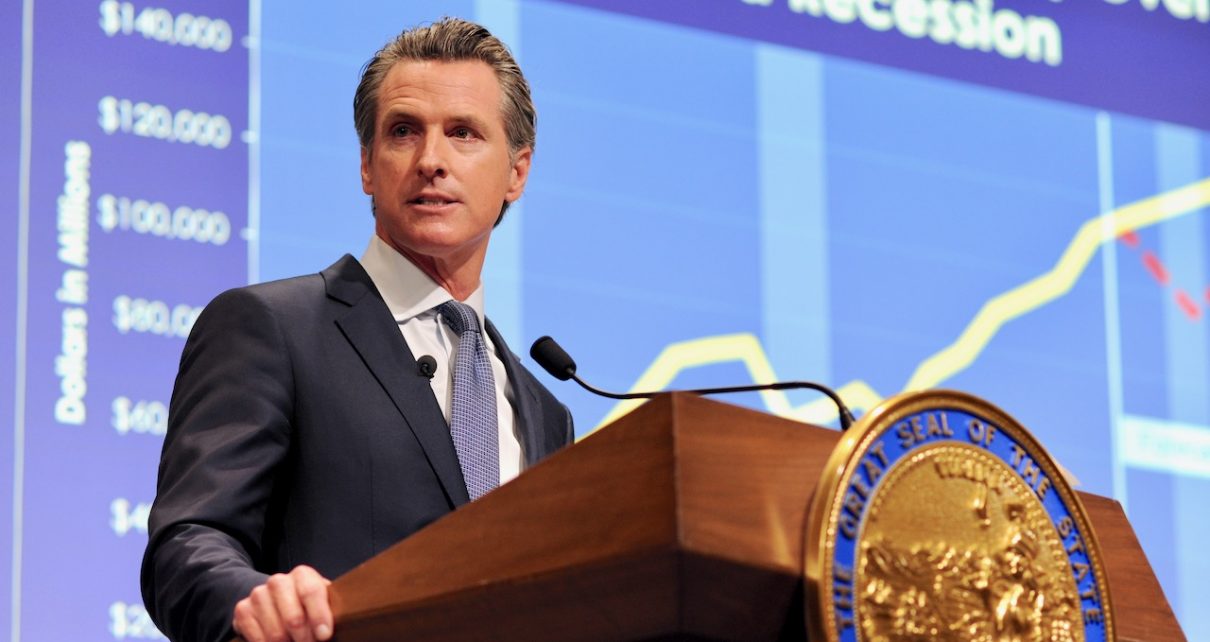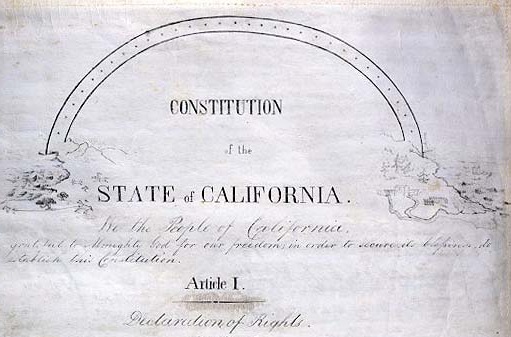
Gov. Gavin Newsom presents 2019 budget. (Photo: Kevin Sanders for California Globe)
The California Governor’s Pardon Power
There is one constitutional limitation on the chief executive’s pardon power
By Chris Micheli, December 28, 2021 9:45 am
Both the U.S. President and California’s Governor have the power to pardon. The President’s pardon power is contained in Article II, Section 2, Clause 1 of the U.S. Constitution, which provides that “The President … shall have Power to grant Reprieves and Pardons for Offenses against the United States, except in Cases of impeachment.” The Governor’s pardon power is contained in Article V, Section 8, Subdivision (a) of the California Constitution.
The President’s pardon power grants a criminal offender relief from any punishment from his or her conviction. The Governor’s pardon power is analogous. Section 8(a) provides the Governor with the power to grant reprieves, pardons, and commutations, except in the case of an impeachment (similar to the federal Constitution’s limitation on the President). This authority is discretionary because the Governor’s power is “on conditions the Governor deems proper.”
The power to grant a reprieve, pardon, or commutation occurs after an offender is sentenced. This power is also subject to application procedures provided by statute. As a result, the Legislature has imposed procedures for applying, but granting a reprieve, pardon, or commutation is entirely in the discretion of the Governor, without a role for the legislative branch of government.
Nonetheless, the state Constitution requires the Governor to report to the Legislature every reprieve, pardon, or commutation granted. In that legislative report, the Governor must state the pertinent facts and the reasons for granting the reprieve, pardon, or commutation. Government Code Section 12017 specifically provides:
At each session the Governor shall report to the Legislature each reprieve, pardon, and commutation granted, stating the name of the convict, the crime of which he was convicted, the sentence, its date, the date of the pardon, reprieve or commutation, and the reasons for granting the same.
Note also that the Secretary of State, pursuant to Government Code Section 12162, is required to keep a register and attest to the official acts of the Governor, including any pardons issued. Also, under Section 12030, the Governor is required to keep a register, which includes all applications for pardon or commutation of any sentence.
There is one constitutional limitation on the chief executive’s pardon power: the Governor may not grant a pardon or commutation to a person who has twice been convicted of a felony, except on recommendation of a majority (4 justices in agreement) of the Supreme Court. The high court acts upon an application submitted by the Governor. The high court usually approves these gubernatorial requests, but it did reject a few in the past couple of years.
- Proration of Estate Taxes - February 28, 2026
- Corporations Commissioner Powers - February 27, 2026
- Death Deeds in California - February 27, 2026




